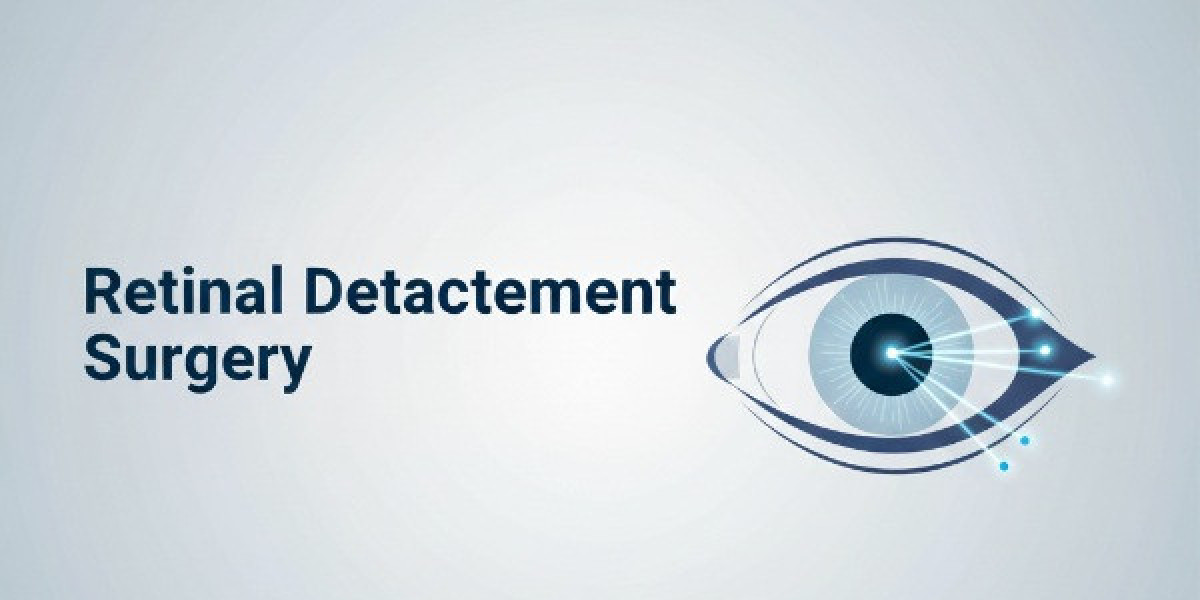Introduction
The gift of sight is something many of us take for granted until a sudden change reminds us how fragile vision can be. Retinal detachment is one such condition that often develops quietly but can lead to permanent vision loss if ignored. Recognizing the early warning signs and seeking immediate medical care is the key to protecting eyesight.
When detected early, retinal detachment treatment can restore vision and prevent severe complications. With advanced techniques like retinal detachment surgery, eye specialists can offer patients a second chance at clear vision. This is why being aware of the earliest signals your eyes send is so important.
Why Retinal Detachment Needs Attention
The retina is the thin, delicate tissue at the back of the eye responsible for capturing images and sending them to the brain. When this layer starts to pull away from its normal position, vision becomes compromised. Retinal detachment is a medical emergency, and without timely treatment, the damage can become irreversible.
Early diagnosis ensures patients receive the right care at the right time. Whether through laser treatment or retinal detachment surgery, eye specialists can save sight and help patients regain confidence in their daily life. But the first step always begins with noticing unusual changes.
Common Early Warning Signs
Sudden increase in floaters – If you notice small dark specks or cobweb-like shapes drifting across your vision more frequently than before, it could be an early warning.
Flashes of light – Quick flashes, especially in the peripheral vision, may signal that the retina is under stress or pulling away from its natural place.
Blurred or distorted vision – When your eyesight suddenly loses clarity or straight lines appear bent, it is often a sign that the retina is struggling.
Shadow or curtain effect – A dark shadow moving across the field of vision is one of the most serious symptoms. This can indicate that retinal detachment has already begun.
Reduced side vision – Loss of peripheral vision often goes unnoticed until it becomes significant. Paying attention to this change is crucial.
Each of these signs may appear harmless at first, but together they strongly indicate the need for immediate retinal detachment treatment.
Who Is at Greater Risk?
Certain individuals are more likely to develop retinal detachment. Those with high myopia, a family history of retinal problems, or who have experienced eye trauma must remain particularly cautious. People who have undergone cataract surgery are also at a slightly higher risk.
Regular eye checkups are not just a precaution but a necessity for these groups. By detecting subtle changes, specialists can intervene before retinal detachment surgery becomes the only option.
Importance of Timely Eye Checkups
Many patients ignore mild symptoms until vision loss becomes severe. A routine eye examination allows specialists to detect early retinal tears or weak spots before they develop into a detachment.
When patients commit to regular checkups, especially after age 40, the chances of identifying risks early increase dramatically. Prevention is always better than emergency care, and in the case of retinal detachment treatment, timely action makes all the difference.
What to Expect During Retinal Detachment Treatment
Once diagnosed, the type of treatment depends on the severity of the condition. Minor retinal tears may be sealed with laser therapy or freezing techniques. More advanced cases require retinal detachment surgery, where specialists reposition the retina and secure it in place.
Modern techniques have improved recovery times, making treatment less stressful for patients. With proper post-surgery care, many regain strong vision and return to their daily activities. The key, however, lies in reaching a super speciality eye hospital before the condition worsens.
Caring for Your Vision After Treatment
Recovery does not end with surgery or initial treatment. Patients must follow a tailored plan of rest, regular follow-ups, and protective measures. Avoiding strenuous activities, protecting the eyes from injury, and attending scheduled reviews are essential parts of healing.
The emotional side of recovery is also important. Patients often feel anxious about their sight. Supportive care from doctors, counselors, and loved ones can make the journey smoother and more reassuring.
Conclusion
Vision loss from retinal detachment is preventable when early warning signs are taken seriously. Floaters, flashes of light, or sudden shadows in vision should never be ignored. Immediate consultation at a trusted eye hospital can determine whether retinal detachment treatment or surgery is required.
With expertise, advanced technology, and a patient-first approach, a super speciality eye hospital like Maxi Vision Eye Hospital ensures that every individual receives comprehensive care. Protecting sight is not just about treatment—it is about preserving quality of life.








